|
An Excerpt from Spiritual Awakening St. Paisios the Athonite — Geronda, what books should be read by those who are beginning their spiritual search? — First, they should read the New Testament to learn the meaning of Christ, to be shaken up a little; later they can read the Old Testament. Do you know how hard it is when they have read nothing and yet they come to ask for help? It is like an elementary school child going to a university professor and saying, “Help me.” What can the professor tell him? “One plus one equals two”? Others, again, are not spiritually restless; they come and say, “Father, I have no problems and I am just fine; I only dropped by to see you.” Man can never say that he has no problems, no concerns; he will have something. The struggle for the spiritual life never ends. Or some people come and tell me, “Tell us spiritual things.” It is as if they went to the grocery store and said, “Give us some groceries.” The grocer is at a loss and needs to know what they need. They need to say, “I want so much sugar, so much rice, and so on, but they only say, ‘Give us groceries.’ “It is like going to the pharmacy and saying, “Give us medicines,” without first saying what their illness is, or whether or not they went to the doctor, and what he advised them to do. Go figure! You see, whoever is seriously concerned over his spiritual condition knows, more or less, what he is lacking, and once he seeks it, he benefits. As a novice, when I read something I liked, I wrote it down so as not to forget it, and I would try to apply it to my life. I didn’t readjust to pass my time pleasantly. I had a spiritual restlessness and, when I could not understand something, I would ask for an explanation. I read relatively little, but I checked myself a great deal on what I read. “What point am I at? What must I do?” I would sit myself down and go through such a self-examination. I did not allow what I read to pass me by untaxed. Today with so much reading people end up like tape recorders, filling up their cassettes with superfluous matters. According to Abba Isaac, however, Wisdom not based on righteous activity is a deposit of disgrace. [1] You see, many who are interested in sports read sports magazines and newspapers while they are sitting. They may be like the fatted calf, but they still marvel at the athletes. “Oh he is marvellous! He is great! Bravo!” But they don’t work up any sweat, and they don’t lose any pounds. They read and read about athletic events, and then they go and lie down; they gain nothing. They are satisfied with the pleasure of reading. Some worldly people read newspapers, others romantic literature or an adventure novel, still others watch a football game at the stadium and pass their time. The same thing is done by some people who read spiritual books. They may spend the whole night reading spiritual books with great intensity and be content. They take a spiritual book, sit comfortably, and begin reading. “Oh, I profited from that,” they say. It would be better to say, “I enjoyed myself, I spent my time pleasantly.” But this is not profit. We profit when we understand what we read, when we censure ourselves and discipline ourselves by applying it: “What does this mean? Where do I stand in relation to this spiritual truth? What must I do now?” After all, the more we learn, the more responsibility we have to live up to what we have learned. I am not saying that we should not read so that we can plead ignorance and therefore be free of responsibility, for this is a cunning deception; I am saying that we should not read merely to pass our time pleasantly. The bad thing is that if someone reads a lot and has a strong memory, he may remember many things and may even talk a lot about what he has read, and thus deceive himself into thinking that he also personally observes the many things he reads. So he has created an illusion toward himself and others. So don’t be comforted by the thought that you read a lot. Instead, turn your attention to applying what you have read. Much reading alone will only educate you encyclopaedically. Isn’t that what they call it? — Yes, Geronda. — The goal, however, is to be transformed in a God-centred manner. I am not aiming to be a university professor where I would need to know many things. But if I ever need something from this worldly knowledge, I can easily learn it once I have acquired the God-centred knowledge. Do you see what I mean? — When one has a distraction, is it beneficial to concentrate through study? — Yes, one should read a little, something very demanding, in order to warm the soul. This keeps distractions and concerns under the lid, and the mind is transposed into a divine realm. Otherwise, the mind is diverted by whatever task is preoccupying it. — Geronda, when someone is tired or upset, he usually wants to read something light and easy, a short story or a novel, perhaps, or something like that. — Is there no spiritual book that is appropriate for such times? The purpose is not to forget one’s worry, but to be redeemed. Such light reading does not redeem. Novels, newspapers and television have no value in developing a spiritual life. Quite often even some religious periodicals are damaging to Christians, because they stir a foolish zealousness that leads to confusion. Take care. Do not read unnecessary things during your free time. Some reading matter is completely hollow, like a water-pumpkin; it is like looking in a haystack to find a kernel of wheat. Some people say, “Yes, but they relax me.” But how can they be relaxing, my good man, if they make you dizzy and cause your eyes to ache? It is better to rest by sleeping. You can learn much about a person’s spiritual state from what he reads. One who is very worldly will probably be reading indecent magazines. One who is less worldly will read less indecent magazines and newspapers. One who is religious will read religious periodicals, or contemporary religious books or patristic texts, and so on. — Geronda, which spiritual books are the most helpful? — The various patristic texts, which thank God are available by the thousands today, are very helpful. One can find whatever one needs and desires in these books. They are authentic spiritual nourishment and a sure guide on the spiritual path. However, in order to be of benefit to us, they have to be read with humility and prayer. Patristic texts reveal the inner spiritual condition of the soul, much as axial tomography reveals the inner structures of the body. Each sentence of the patristic texts contains a multitude of meanings, and each person can interpret them according to their own spiritual state of being. It is better to read the ancient text rather than a translation, because the translator interprets the original verse according to his own spirituality. In any case, in order to understand the writings of the Fathers one must constrain oneself, focus and live spiritually, for the spirit of the Fathers is perceived through and by the spirit only. Especially helpful are the Ascetical Homilies by Saint Isaac the Syrian, but they must be studied slowly so that they can be assimilated little by little as spiritual food. The Evergetinos is truly of great benefit, because it gives us insight into the Whole spirit of the Holy Fathers, it is helpful because it describes the struggles of the Fathers against each and every one of the passions, and, by learning how they worked on the spiritual life, the soul is greatly assisted. Also, the Synaxaria, the Lives of the Saints, are sacred history and very helpful, especially for young people, but they should not be read as stories. We do not need great knowledge to be devout. If we concentrate and meditate on the few things we know, our heart will be spiritually embroidered. One may be profoundly affected by a single hymn, while another may feel nothing, even though he may know all the hymns by heart, as he has not entered into the spiritual reality. So, read the Fathers, even one or two lines a day. They are very strengthening vitamins for the soul. St. Paisios the Athonite 11/22/2009 From Spiritual Awakening, Vol. II in the Spiritual Counsels series by Elder Paisios of Mount Athos (Souroti, Thessaloniki, Greece: Holy Monastery "Evangelist John the Theologian", 2008), pp. 109-114. https://orthochristian.com/32840.html
1 Comment
(This article is written anonymously by a dear friend): Choosing Good Books for your ChildThere is a common idea in educational circles that children need to read more. That if we can just get kids to read more, several educational problems will go away. Kids will learn to spell. They will learn to write. They will be able to take standardized tests, allowing us to quantify their learning. This leads to all sorts of reading campaigns. You have seen the big posters with Wonder Woman, Yoda, or Cookie Monster on them, with “READ” written in giant letters across the bottom. Most educators assume that it doesn’t really matter what the child reads, as long as they read something. However, while reading is generally beneficial, we should not let our eagerness to see our kids read distract us from scrutinizing what they read. Because not every book is worth reading. Perhaps every book will help your child to build their fluency, which is the ability to read quickly, accurately, and with expression. Is fluency the only goal or is it the most important goal? Of course not. We want to help our children develop language skills, but more importantly we want to help them develop healthy attitudes, morals, and souls. Every book they read will have an impact on their intellectual, emotional, and spiritual development. Therefore, we must be vigilant about which books we allow our children to read. Increasingly, children’s books are becoming a common means of exposing our children to ideas that directly assault our faith and morals. Some children’s books have become so vile that it would be better for your child to be illiterate than to read them. We must realize that every book we read has an impact on us, whether we notice it or not. Stories are not read and forgotten; they stay with us. We lie awake at night thinking about them. We identify with characters and try to emulate them. We talk like them. Spend two weeks reading Jane Eyre and you will be different. Spend another two weeks reading Fifty Shades of Grey and you will again be different. Too often we underestimate the impact of books on our children. I know a twelve year old child, a Christian homeschooler, who after reading Percy Jackson, began to think she was a demigod of ancient Greece. Why does this happen? Simply stated: we are not attentive to what our children are reading and thinking. We must be attentive to the thoughts of our children. And we must realize that the books we read have a profound influence on thoughts. All books are not equal. Some books are holy, some books are helpful, some books are harmful, and some books are evil. If you want your child to grow physically healthy, you must be attentive to what they eat. You try to load their plates with healthy, nutrient-dense foods, superfoods. Occasionally, you allow sweets, hopefully sweets that are still somewhat healthy. But you absolutely cut out toxic “foods” like twinkie and sodas, so common in today’s markets. And what insane person would allow their child to take poison? We must begin looking at books in the same way. Your children need healthy books to grow intellectually, emotionally, and spiritually. How do we identify the healthy books today? Holy BooksLet’s begin with the best books: Holy Books. This would include the Bible, the Lives of the Saints, and their writings. These books should be read often and by everyone. No other books come close to these in terms of their spiritual benefit to the reader -- I think we can all agree on this. These are the superfoods of the book world. But many of us do not know which of these books in particular might be best suited for children. Two books that would be most appropriate for children would be the Gospels and the Great Collection of the Lives of the Saint by St. Dimitri of Rostov. What can I say about the Gospels? In them, we encounter Christ. These are His words to every Christian struggler. We are shown little by little our own poverty and God’s great love for us. Read them often and they will work on your heart. Children love hearing the simple retellings of the lives of the great heroes of our faith, the saints. In these stories, we see the gospel lived in its purity by people throughout all the world and across all the ages. Reading about the saints builds faith in God, boldness in adversity, and patience in suffering. A girl who loves pretty things sees that young women, more beautiful and more wealthy than she, gave everything up for Christ, and she is encouraged to give up a little for Him, too. Being fed by these stories daily will develop a spiritual bank in your child’s heart, helping him to value the things of this world according to our Orthodox faith. There is no need to sermonize to your child every morning; simply read the gospel and the saints’ lives, and let them work on your child’s heart directly. Potato Chip BooksIf we are going to talk about eating healthy, we can’t just add superfoods to our diet. We must also cut out junk food. It would be silly to take spirulina if you are going to eat a donut right afterwards. We can all see the sense of this. So let’s be honest: soda, donuts, twinkies, and potato chips are not really food, they are non-food, or imitation food. The book world also has non-books or imitation books, what I call potato chip books. These are books that you can put directly in the trash, no need to even give them to Goodwill. These books include books that make sounds or have flashing lights. This category includes books that have no real story but are just a commercial for a cartoon or action figure, and also books whose language is so infantile and whose story is so boring, no adult could stand to read it. How you ever noticed that a well-written children’s book is not only a delight to children but is also enjoyable to an adult? I have read Corduroy a thousand times, but I don’t mind. It is a sweet, well-written story. If you want to test whether a book is a potato chip or not, read a page or two. Was it painfully boring? Was the language infantile, rude, or nasty? Would you be dismayed if your child spoke or acted that way? Was it more about a commercialized character than about the plot? Did it buzz or have flashing lights? Was it a picture book with ugly illustrations, especially ones that disfigure the human form, the image of God? If the answer is yes, then it is a potato chip book and just throw it out. (You can wait until the children are asleep if needed!) So now we have identified the two easiest categories to see. Holy books are good. Potato chip books are bad. For all other fiction books, we will need to think a little more carefully. I have found Andrew Pudewa’s way of organizing stories to be very helpful. He goes into depth on this issue in his talk called “Fairy Tales and the Moral Imagination,” which is available as an audio download at the Institute for Excellence in Writing. He breaks stories down into four different categories. The Four Story TypesThe Whole StoryFirst, The Whole Story. In whole stories good is good, bad is bad, and good wins. Whole stories are uplifting. You see protagonists who overcome their struggles. The bigger their struggle, the greater the joy when they overcome it. Take, for example, Corduroy. He feels so lost and alone at the big department store. He knows he is missing something, but what? Then one day Lisa comes to take him home and for the first time he realizes what he always wanted: a friend. This level of conflict is just right for a young child; there is no need for big scary zombies or monsters. Just a small, winnable battle over loneliness. As children grow, the tension and conflict grow with them, always ending in a victory. Will Wilbur be saved from the slaughterhouse? Will Oliver Twist escape from the evil Fagan and find his family? Will Jane Eyre resist sin and still find authentic love? Yes, they all overcome in the end. These stories are especially needed now as our culture becomes more negative, sarcastic, and depressed. Most older picture books and classic children’s books are whole stories. The Healing StoryThe next story type is the Healing Story. In these stories, good is good, bad is bad, and good wins, but not in the way you expect. One of my favorite stories from this category is the Little Match Girl by Hans Christian Anderson. In this story, a poor, young girl is on the streets of London on a snowy, freezing New Year’s Eve and she is trying to sell her matches. If she doesn’t sell the matches, she will be beaten by her father when she returns home. One by one she lights a match so she can warm herself. She begins having these beautiful visions of food and warmth, and the final one is of her departed grandmother, the only person who ever loved her. Her grandmother starts fading away as the match burns out, and she frantically lights all of the matches and has a vision of being welcomed into heaven. The last paragraph is about the Londoners finding her frozen, lifeless body on the street in the morning. This story is both beautiful and tragic. It is a healing story: good wins, but not in a worldly sense. These stories remind me of the martyrdom of the saints. There is hidden triumph -- good wins, but not everyone can see it. It helps children learn that even if bad things happen, we can have faith that God sets all things right in the end, though we perhaps cannot see it yet. The Broken StoryNow we come to the Broken Story. In broken stories, good is good and bad is bad, but bad wins. In general, these would be cautionary tales. Pinocchio is a good example. Andrew Pudewa tells the story that when he was reading this to his son, his wife overheard the really weird parts and asked if he should be reading this to their son. He said he was not quite sure but that he thought it had some redemptive quality. The next night when they are reading, and of course the book is just Pinocchio doing one dumb thing after another, and Pinocchio is about to do another dumb thing, and his son yells out, “No Pinocchio ! Don’t do it!” Andrew says that in that moment, he realized the benefit of that book is teaching kids to see the dumb things they are about to do before they do it. You want your kids to have that internal dialogue and be able to recognize the dumb thing and to tell themselves not to do it. While some benefit can be gleaned from these stories, I think you have to be careful how many of these stories they read, especially with younger children or more sensitive children. The Twisted StoryOur final category is Twisted Stories. In Twisted Stories, good is portrayed as evil and evil is portrayed as good. We only find these stories in the modern world, and their numbers are increasing rapidly. These disturbing stories should be completely avoided. They can cause a lot of destruction in the mind of a child who is still forming ideas about the world. One of the literary devices that twisted stories use is the reversing of archetypes. Let’s look at a popular children’s movie that is full of twisted archetypes, Maleficent. (All these categories can be applied to movies and television shows as well, since they are stories too.) As Disney remakes their old cartoon movies as live action movies, they began changing the viewpoint of the story. Maleficient is Sleeping Beauty told from the perspective of the evil fairy. The character of Maleficent is telling -- her name means “doing or producing harm; acting with evil intent.” The trailer for this movie begins when the fairy Maleficient, who was not invited to give the new princess a blessing, comes anyway, and as the king looks on helplessly, Maleficent curses the child to die at 16. Then on the screen in large letters we see: Now Find Out the Truth. So, the story we have all been told by the King, who is himself an Archetype of Christ the King, is a lie. (I am not following here – sorry! Haven’t seen the movie) This is the message of this movie. But it gets worse: the evil fairy befriends the young princess and shadows her throughout her childhood. Maleficient becomes “fond” of the child and reveals herself to the princess in a garden. They become friends and Maleficent takes her to meet her band of fairies. Then the princess asks, ‘All the other fairies have wings and can fly. Why do you not? Here is her answer: “I had wings once, but they were stolen from me.” Think about that. Who does this sound like to you? What fallen or wingless ‘angel’ has been cast out by the king, looks like a dragon, has evil intent, meets a woman in a garden, and plans to hurt the king by hurting his child? Who? Make no mistake, these connections are intentional. This reversal of archetypes targets children with the normalization of evil. Now you may be saying, “But this is just a children’s story. It’s just for fun. Does it really matter?” Yes, it matters. When we allow children to read books that normalize or glorify evil, we get kids who see evil things as normal, or even good. If you look closely at the children’s bookshelves of your local library you will not see it full of the classic literature or wholesome stories of forty years ago. You will see titles like “Goblins”, “Demonkeeper,” “Harry Potter,” “Percy Jackson and the Titan’s Curse,” and “Goosebumps”. That is the children’s section. The teen section is worse. The majority of the new books are based on magic, vampires, ghosts, aliens, LGBTQAI+, abortion rights propaganda, sex, Marxism (often dressed up as activism), drugs, self-harm, and suicide. We aren’t talking about a few unsavory books. It’s a tidal wave. This tidal wave washes over today’s children. These are the books at the library and at the bookstore. They are read by their friends and assigned by their teachers. They are recommended online and made into movies. You can buy the action figure, t-shirt, or backpack. The outcome is that our children begin to think these ideas are normal and acceptable; their worldview is being shaped by them. Parents must begin to be acutely aware of what their child is reading. Don’t be afraid to go against the current of popular thought. Research wholesome books. Build your home library. Ask trusted friends for recommendations and encourage one another to choose books wisely. Don’t be satisfied that your children read; make sure they read healthy books. Recommended Follow-up:ELDER PAISIOS ON SPIRITUAL STUDY
An Excerpt from Spiritual Awakening St. Paisios the Athonite — Geronda, what books should be read by those who are beginning their spiritual search? — First, they should read the New Testament to learn the meaning of Christ, to be shaken up a little; later they can read the Old Testament. Do you know how hard it is when they have read nothing and yet they come to ask for help? It is like an elementary school child going to a university professor and saying, “Help me.” What can the professor tell him? “One plus one equals two”? Others, again, are not spiritually restless; they come and say, “Father, I have no problems and I am just fine; I only dropped by to see you.” Man can never say that he has no problems, no concerns; he will have something. The struggle for the spiritual life never ends. Or some people come and tell me, “Tell us spiritual things.” It is as if they went to the grocery store and said, “Give us some groceries.” The grocer is at a loss and needs to know what they need. They need to say, “I want so much sugar, so much rice, and so on, but they only say, ‘Give us groceries.’ “It is like going to the pharmacy and saying, “Give us medicines,” without first saying what their illness is, or whether or not they went to the doctor, and what he advised them to do. Go figure! You see, whoever is seriously concerned over his spiritual condition knows, more or less, what he is lacking, and once he seeks it, he benefits. As a novice, when I read something I liked, I wrote it down so as not to forget it, and I would try to apply it to my life. I didn’t readjust to pass my time pleasantly. I had a spiritual restlessness and, when I could not understand something, I would ask for an explanation. I read relatively little, but I checked myself a great deal on what I read. “What point am I at? What must I do?” I would sit myself down and go through such a self-examination. I did not allow what I read to pass me by untaxed. Today with so much reading people end up like tape recorders, filling up their cassettes with superfluous matters. According to Abba Isaac, however, Wisdom not based on righteous activity is a deposit of disgrace. [1] You see, many who are interested in sports read sports magazines and newspapers while they are sitting. They may be like the fatted calf, but they still marvel at the athletes. “Oh he is marvellous! He is great! Bravo!” But they don’t work up any sweat, and they don’t lose any pounds. They read and read about athletic events, and then they go and lie down; they gain nothing. They are satisfied with the pleasure of reading. Some worldly people read newspapers, others romantic literature or an adventure novel, still others watch a football game at the stadium and pass their time. The same thing is done by some people who read spiritual books. They may spend the whole night reading spiritual books with great intensity and be content. They take a spiritual book, sit comfortably, and begin reading. “Oh, I profited from that,” they say. It would be better to say, “I enjoyed myself, I spent my time pleasantly.” But this is not profit. We profit when we understand what we read, when we censure ourselves and discipline ourselves by applying it: “What does this mean? Where do I stand in relation to this spiritual truth? What must I do now?” After all, the more we learn, the more responsibility we have to live up to what we have learned. I am not saying that we should not read so that we can plead ignorance and therefore be free of responsibility, for this is a cunning deception; I am saying that we should not read merely to pass our time pleasantly. The bad thing is that if someone reads a lot and has a strong memory, he may remember many things and may even talk a lot about what he has read, and thus deceive himself into thinking that he also personally observes the many things he reads. So he has created an illusion toward himself and others. So don’t be comforted by the thought that you read a lot. Instead, turn your attention to applying what you have read. Much reading alone will only educate you encyclopaedically. Isn’t that what they call it? — Yes, Geronda. — The goal, however, is to be transformed in a God-centred manner. I am not aiming to be a university professor where I would need to know many things. But if I ever need something from this worldly knowledge, I can easily learn it once I have acquired the God-centred knowledge. Do you see what I mean? — When one has a distraction, is it beneficial to concentrate through study? — Yes, one should read a little, something very demanding, in order to warm the soul. This keeps distractions and concerns under the lid, and the mind is transposed into a divine realm. Otherwise, the mind is diverted by whatever task is preoccupying it. — Geronda, when someone is tired or upset, he usually wants to read something light and easy, a short story or a novel, perhaps, or something like that. — Is there no spiritual book that is appropriate for such times? The purpose is not to forget one’s worry, but to be redeemed. Such light reading does not redeem. Novels, newspapers and television have no value in developing a spiritual life. Quite often even some religious periodicals are damaging to Christians, because they stir a foolish zealousness that leads to confusion. Take care. Do not read unnecessary things during your free time. Some reading matter is completely hollow, like a water-pumpkin; it is like looking in a haystack to find a kernel of wheat. Some people say, “Yes, but they relax me.” But how can they be relaxing, my good man, if they make you dizzy and cause your eyes to ache? It is better to rest by sleeping. You can learn much about a person’s spiritual state from what he reads. One who is very worldly will probably be reading indecent magazines. One who is less worldly will read less indecent magazines and newspapers. One who is religious will read religious periodicals, or contemporary religious books or patristic texts, and so on. — Geronda, which spiritual books are the most helpful? — The various patristic texts, which thank God are available by the thousands today, are very helpful. One can find whatever one needs and desires in these books. They are authentic spiritual nourishment and a sure guide on the spiritual path. However, in order to be of benefit to us, they have to be read with humility and prayer. Patristic texts reveal the inner spiritual condition of the soul, much as axial tomography reveals the inner structures of the body. Each sentence of the patristic texts contains a multitude of meanings, and each person can interpret them according to their own spiritual state of being. It is better to read the ancient text rather than a translation, because the translator interprets the original verse according to his own spirituality. In any case, in order to understand the writings of the Fathers one must constrain oneself, focus and live spiritually, for the spirit of the Fathers is perceived through and by the spirit only. Especially helpful are the Ascetical Homilies by Saint Isaac the Syrian, but they must be studied slowly so that they can be assimilated little by little as spiritual food. The Evergetinos is truly of great benefit, because it gives us insight into the Whole spirit of the Holy Fathers, it is helpful because it describes the struggles of the Fathers against each and every one of the passions, and, by learning how they worked on the spiritual life, the soul is greatly assisted. Also, the Synaxaria, the Lives of the Saints, are sacred history and very helpful, especially for young people, but they should not be read as stories. We do not need great knowledge to be devout. If we concentrate and meditate on the few things we know, our heart will be spiritually embroidered. One may be profoundly affected by a single hymn, while another may feel nothing, even though he may know all the hymns by heart, as he has not entered into the spiritual reality. So, read the Fathers, even one or two lines a day. They are very strengthening vitamins for the soul. St. Paisios the Athonite 11/22/2009 From Spiritual Awakening, Vol. II in the Spiritual Counsels series by Elder Paisios of Mount Athos (Souroti, Thessaloniki, Greece: Holy Monastery "Evangelist John the Theologian", 2008), pp. 109-114. |
The
A collection of articles and resources useful for Orthodox Christian parenting and homeschooling. CategoriesArchives
March 2022
|
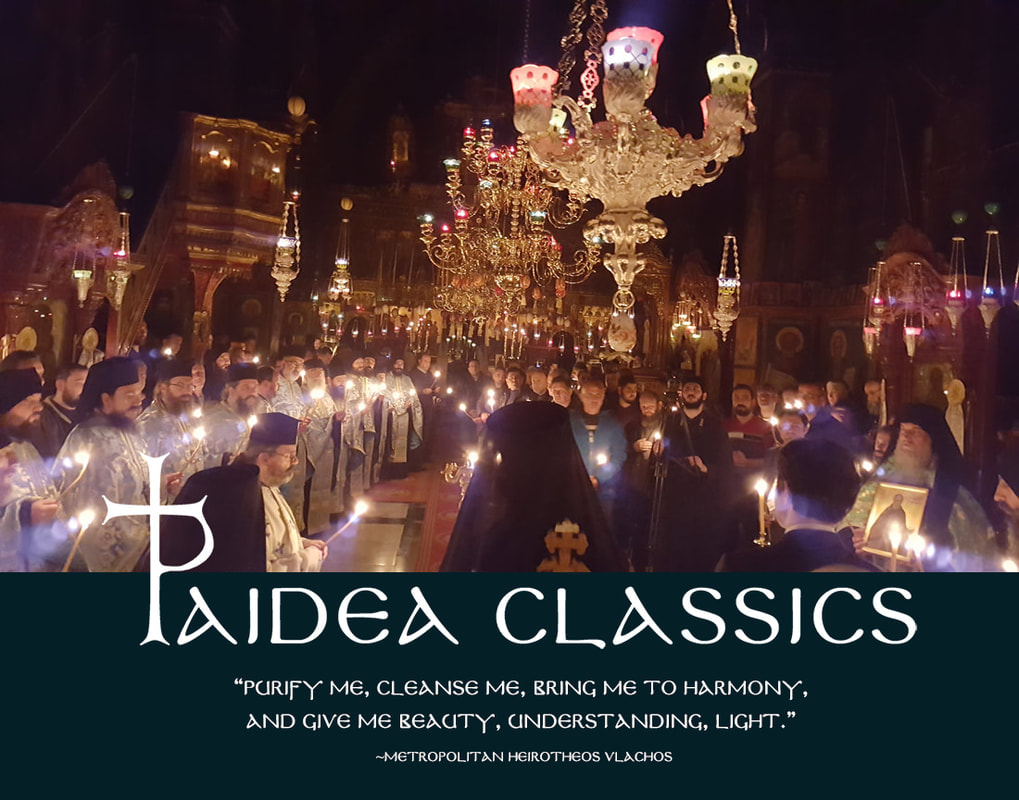
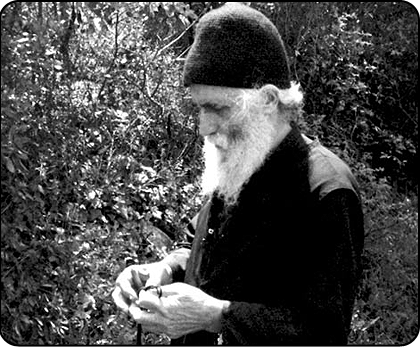
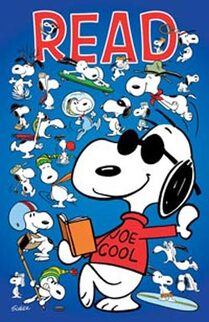
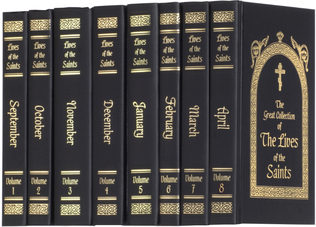
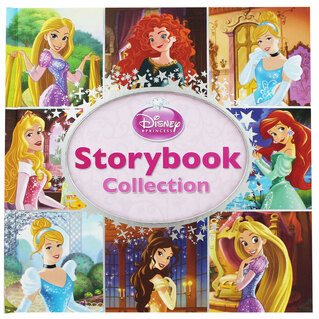
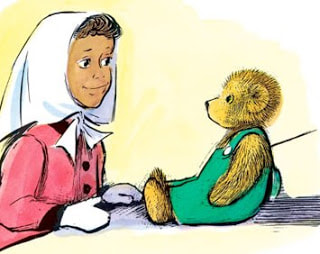
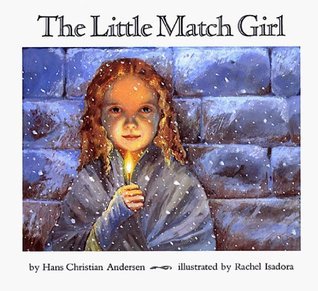
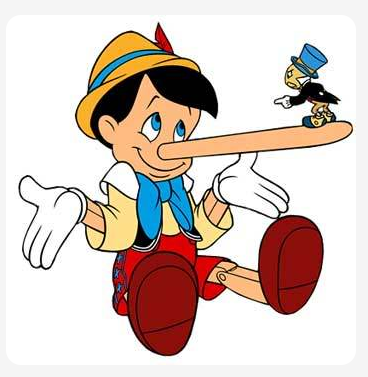
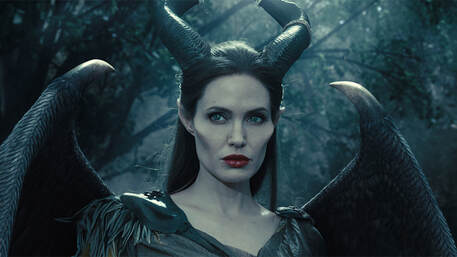
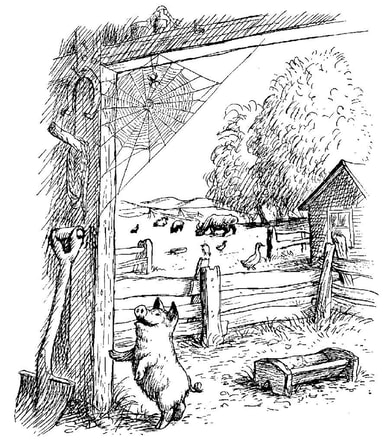
 RSS Feed
RSS Feed